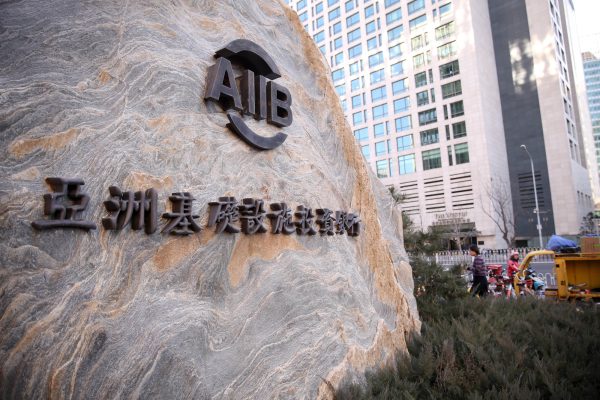
Bob Pickard, the Asian Infrastructure Investment Bank (AIIB)’s former global communications chief resigned last week, tweeting: “I have tendered my resignation as the global comms chief of @AIIB_Official. As a patriotic Canadian, this was my only course. The Bank is dominated by Communist Party members and also has one of the most toxic cultures imaginable. I don’t believe that my country’s interests are served by its AIIB membership.”
Such public, and vitriolic, criticisms of multilateral development banks (MDBs) by former employees are rare, and the accusations come at a time of heightening geopolitical tensions between China and much of the West.
Consequently, Pickard’s announcement has generated a good deal of media interest, with observers pondering over the substance of the claims and what their implications may be.
MDBs have always been woven into the geopolitics of development, serving the interests of their key shareholders and vote holders alongside their borrowers. The AIIB is not unique in this regard. However, the AIIB is distinct from other MDBs concerning China’s enormous vote-holding power (26.58 percent), which affords it veto power over the bank’s operations.
China established the bank in 2016 and it is headquartered in Beijing. This tells us that Chinese Communist Party (CCP) influence is expected to some extent, just as Japan’s influence over the Asian Development Bank and U.S. influence within the World Bank has long been noted. What matters is the form that this influence takes, how it is imposed, and whether it is in excess or breach of the bank’s policy, or the normative expectations of other shareholders.
These details are not provided in Pickard’s tweets and have not been made public. Likely, they never will be, but if there is substance to his claims of CCP domination, this information may be circulated through Canada’s diplomatic channels. Canadian Finance Minister Chrystia Freeland has already announced a halt to Canadian involvement with the AIIB.
From the outside, it bears noting that the AIIB’s leadership team is quite diverse. To provide just a few examples, it includes the former chief secretary to the Treasury of the United Kingdom, a former staffer of the Eurasian Development Bank, a former governor of the Reserve Bank of India, and a former deputy secretary-general of the Organization for Economic Cooperation and Development (OECD).
It is also important to emphasize that criticisms of the AIIB by Western powers (particularly by the U.S.) have been managed by the Bank’s leadership since its inception. So far, the AIIB’s public response to Pickard’s tweets and resignation has been cordial.
With respect to how this accusation will affect the AIIB moving forward, Canada’s percentage of votes within the AIIB is just 0.84 percent. This is not insignificant, but it is in no way a leading donor. Kazakhstan holds a similar vote, with an 0.83 percent voting share, while Turkey holds 2.42 percent, Indonesia 3.16 percent, and India 7.60 percent. Collectively, 72.89 percent of votes are held by countries from within the Asian region, including China’s 26.58 percent vote share, while European countries collectively hold just over 20 percent of the votes.
A domino of disengagements by Western powers would therefore be consequential for AIIB finances and its international legitimacy, but would unlikely be catastrophic. Many AIIB member-states have strong economic and political ties to China – stronger, certainly, than with Canada – as well as debt repayment obligations to Beijing. With so many countries across the Global South accepting large bilateral flows of development financing directly from China, it is hard to see why they would be dissuaded by alleged Chinese political influence within the AIIB.
All this considered, the impact of Pickard’s resignation on China and Xi’s efforts to play a leadership role in multilateral development may prove to be minimal. Certainly, it will have a less significant impact on China’s efforts to use the AIIB as a vehicle for increasing South-South cooperation than it will have on the AIIBs role as a locus for North-South or South-North cooperation.
In the wake of the COVID-19 pandemic, countries across the Global South are experiencing much financial hardship. UNESCAP’s latest projections for Asia and the Pacific are that the U.N.’s sustainable development goals will not be realized until 2065 – 35 years after their 2030 target. This means the appetite for development financing is enormous, and in spite of current challenges with global debt, the AIIB is unlikely to have trouble finding clients willing to take on its loans.
That said, Pickard’s criticisms have quickly become a global media talk point. What will become of all this, if anything, depends on many still-unknown variables.
How Last Week’s High-profile Resignation Will Impact the AIIB
Source: Frappler

0 Comments